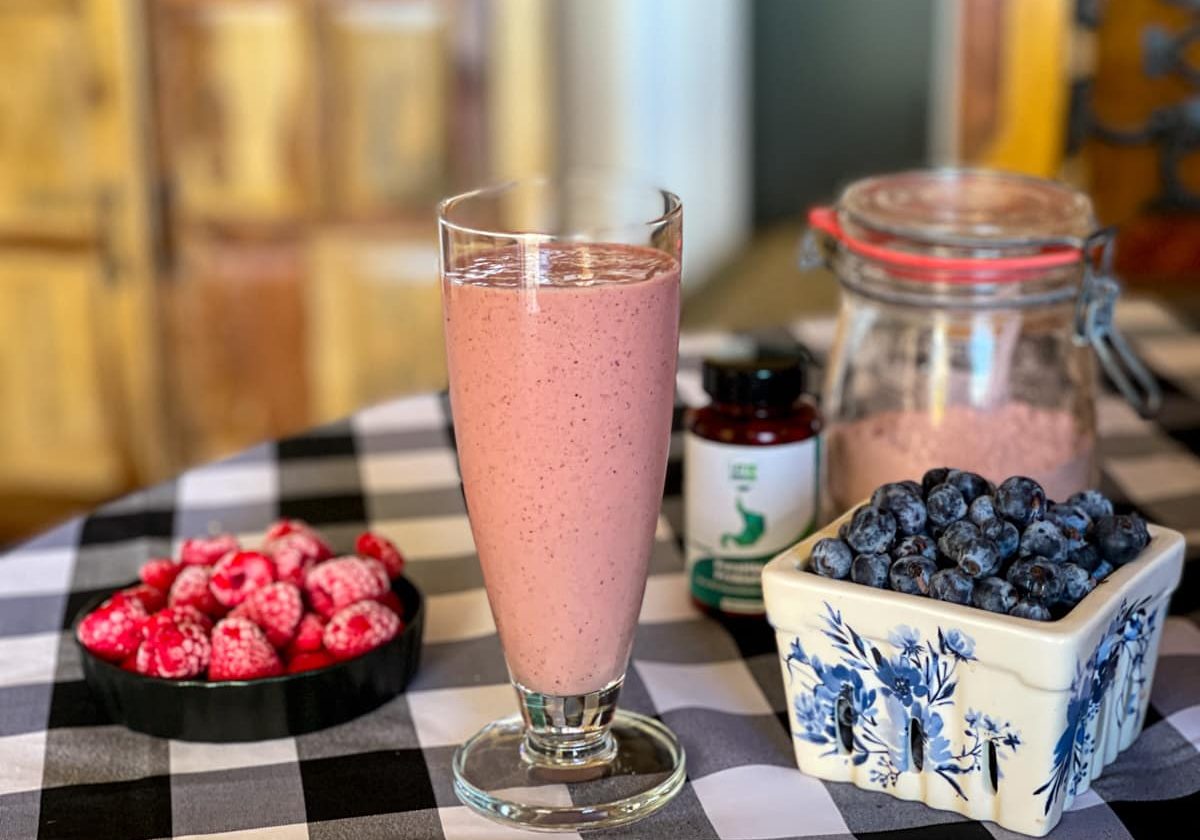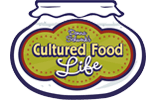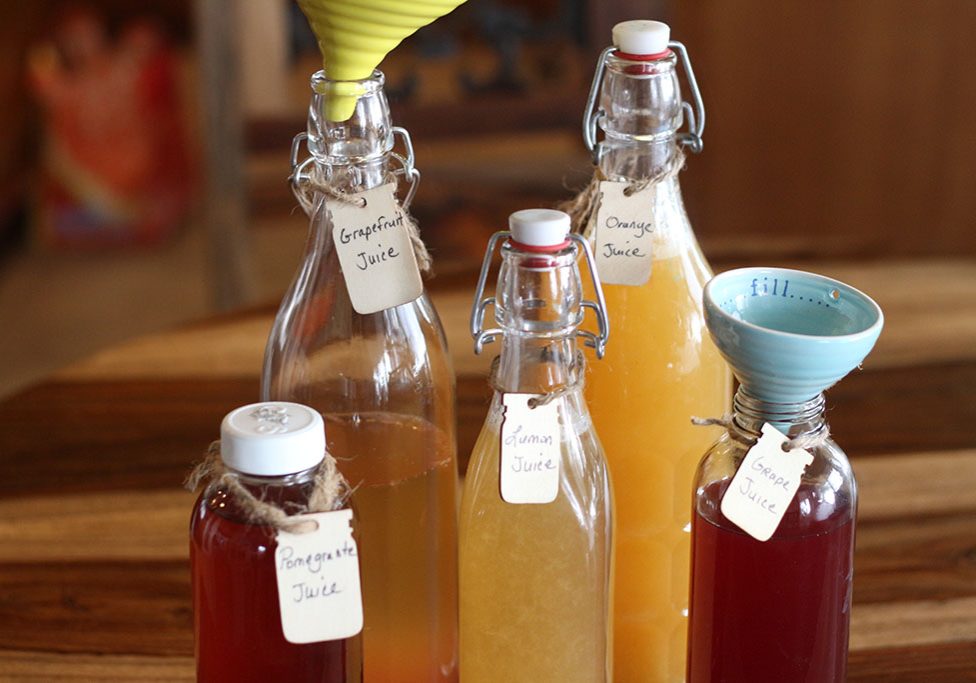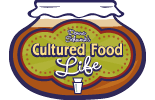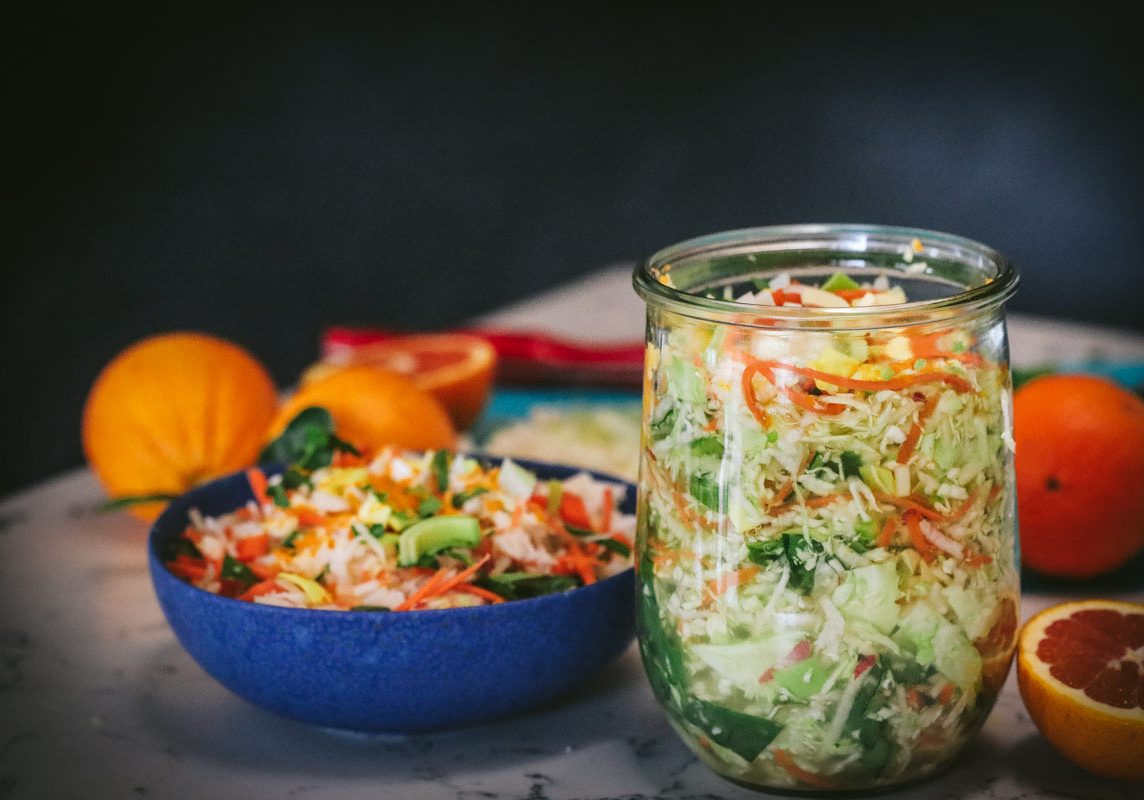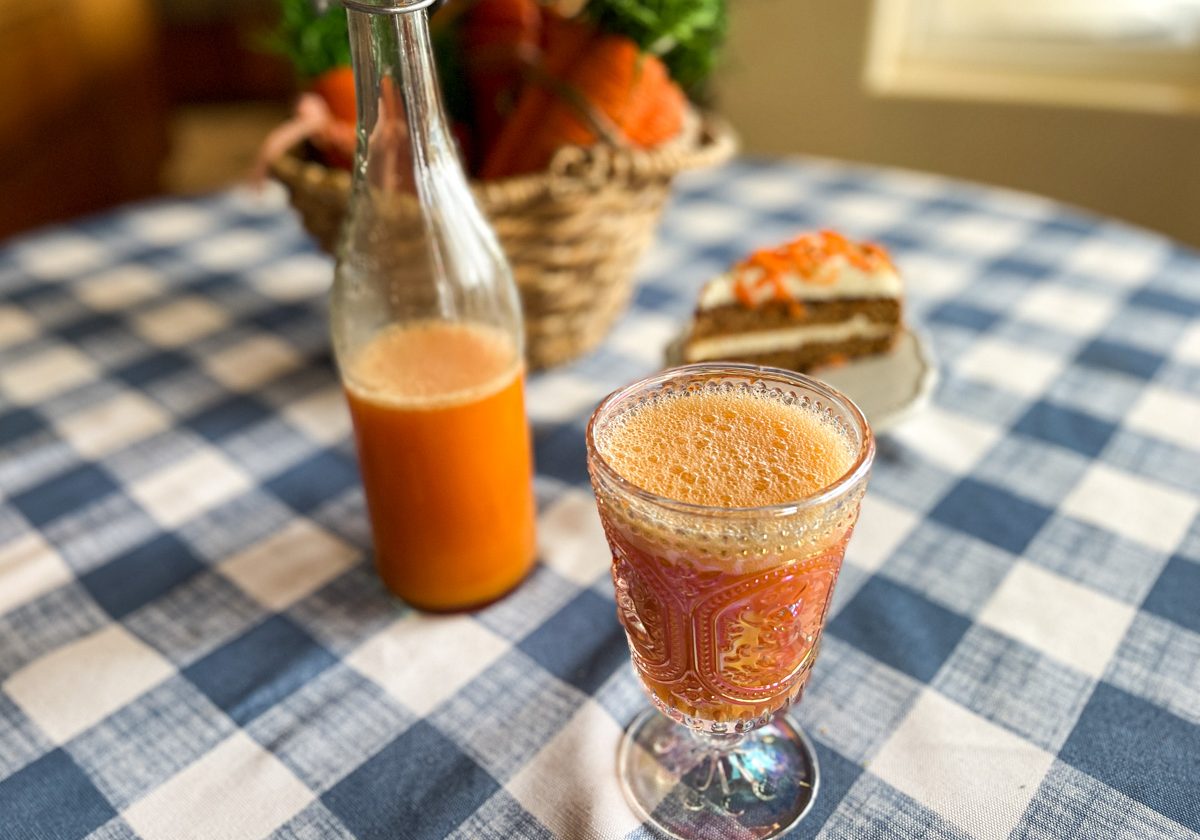
Probiotic Foods For Colds and Flus
Your Immune System and Your Gut
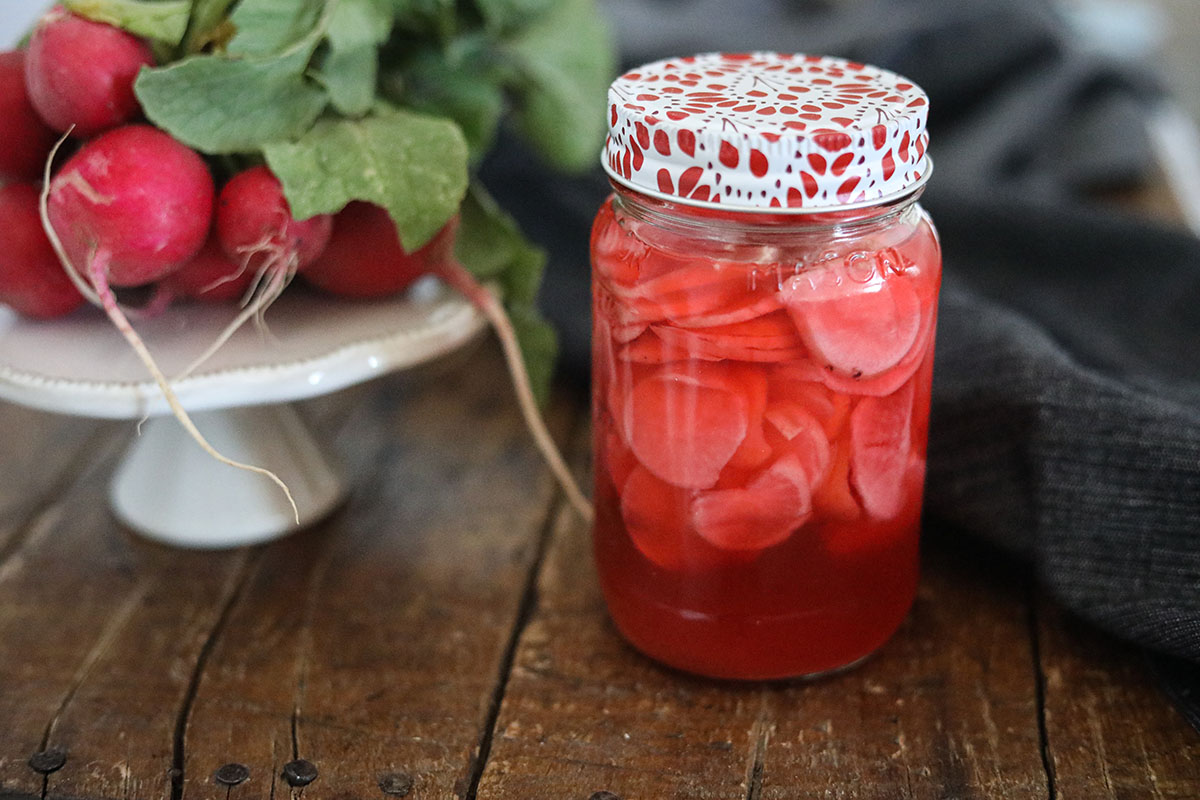 Over the last decade, more and more research has shown that having more good bacteria in your gut does, in fact, appear to improve the body's immune response. This, in turn, helps the body be better prepared to fight off certain infections including the common cold and even COVID-19. (check out the link) Consuming prebiotics and probiotic foods regularly can lower your chances of getting a cold. If you do catch a cold, they may help reduce the severity of your symptoms and shorten how long they last.
Over the last decade, more and more research has shown that having more good bacteria in your gut does, in fact, appear to improve the body's immune response. This, in turn, helps the body be better prepared to fight off certain infections including the common cold and even COVID-19. (check out the link) Consuming prebiotics and probiotic foods regularly can lower your chances of getting a cold. If you do catch a cold, they may help reduce the severity of your symptoms and shorten how long they last.
Seventy percent of your body’s immune cells live in your gut
About seventy to eighty percent of your body’s immune cells live in your gut or intestine. This is roughly 100 trillion immune cells that make up your gut microbiome and play a big role in the strength of your immune system. The local immune system of the gut has two main functions: to protect against infections and to protect against the uptake of and/or harmful immune response to food antigens.
Having a healthy, diverse gut microbiome makes it difficult for illness-causing bacteria and viruses to take hold. A weak, sparsely populated microbiome with a shortage of “good” bacteria can leave you open to illnesses like colds and the flu.
The intestinal immune system contains more antibody-producing cells than the rest of the body put together. [1] The fluids that come from the digestive system (such as mucus and saliva) are as rich as breast milk in both health-supporting and disease-preventing factors. [2]Our immune systems make antibodies that fight bacteria, viruses, and toxins. One of the most common antibodies called secretory IgA (immunoglobulin A), is found in mucous membranes lining the nose, windpipe, and lungs. Immunoglobulin A (IgA) acts as the body’s warning and security system. When IgA levels are adequate, these antibodies can prevent cold and flu viruses from entering the body through the nasal mucus and respiratory tract. Having enough IgA is extremely important because these special antibodies go after both viral and bacterial invaders in your upper respiratory tract, deactivating them and allowing the immune system to destroy them. Having enough IgA can prevent a cold or flu from getting a foothold in your respiratory tract because once a virus infects cells, it can replicate and wreak havoc.
Researchers found that the bacteria Lactobacillus plantarum (L. plantarum - abundant in cultured vegetables and kefir), Lactobacillus acidophilus (also in kefir), along with L. rhamnosus and Bifidobacteria (Check out how to build help Bifidobacteria) reduced the risk of respiratory infections by enhancing secretory immunity. They also added the prebiotic inulin (the main ingredient in Prebio Plus) to make these probiotics grow and multiply. These probiotic strains increase IgA and can stop the virus from replicating, thus helping to prevent colds, influenza, and other respiratory infections. Taking probiotics and prebiotics in several other studies resulted in the same prevention and reduction of the symptoms and duration of colds in those who did get sick. [3,4,5]One study showed 16 cases of flu in the placebo group, compared to just 3 in the probiotic group, along with a 35% reduction in the number of colds, 39% reduction in cough duration (4.5 days vs. 7.3 days), and 25% reduction in the number of days of acute upper respiratory infections (4.6 days vs. 6.1 days).
L plantarum Saving Lives
Saving infants
Another study done on the probiotic L. Plantarum found that it had a huge impact on saving thousands of infants from sepsis. Sepsis is often a deadly, massive immune response to a bacterial infection that gets into the blood. Six hundred thousand infants die annually from sepsis, primarily in developing countries, and researchers have been trying to find a way to stop it for the last twenty years. Dr. Pinaki Panigrahi, a pediatrician at the University of Nebraska Medical Center College of Public Health who led the study, was searching for answers. They screened 280 bacteria strains until one day they found the healthy strain L. Plantarum isolated in the diaper of a healthy Indian baby. They started giving infants L. Plantarum - the kind of lactic acid bacteria found in fermented vegetables and found in my veggie starter culture Cutting Edge Culture. They also added the prebiotic fructooligosaccharides (in Prebio Plus) “to promote growth and sustain colonization of the probiotic strain.” After one week of giving the babies the cocktail of pro- and prebiotics, deaths and sepsis dropped by 40 percent, from 9 to 5.4 percent. [9]
Respiratory infections dropped
But something else happened that they didn't expect. The probiotics also began to help with other types of infections including those in the lungs. Respiratory infections dropped by about 30 percent. "That was a big surprise because we didn't think gut bacteria were going to work in a distant organ like the lung," Panigrahi says. They actually stopped the trial prematurely since it was working so well. "We were planning to enroll 8,000 babies, but stopped at just over 4,000 infants," Panigrahi says.
Pascal Lavoie, a neonatologist at BC Children's Hospital in Vancouver, British Columbia, says, "These beneficial bacteria can push out harmful bacteria in the baby's gut by changing the environment or simply using up resources. They also produce a compound that strengthens the wall of the intestine. It acts as a barrier to prevent the bad bacteria from going through the wall into the blood. The probiotic bacteria can jumpstart a baby's immune system. Probiotics can be much more powerful than drugs."
Your Immune System and Your Gut
Bifidobacteria and Your Immune System
One of the most important bacteria you have is called Bifidobacteria. They call it the young bacteria which is extremely important for adults too, although it often diminishes when it doesn't have to. Bifidobacteria help to activate your immune system, keep it strong, and much more. If you have lots of Bifidobacteria, it will feed all the other bacteria in your gut as well. It's extremely important to have lots of Bifidobacteria so your immune can stay strong and do its job. If you want lots of Bifidobacteria, you need to take HMOs for a short amount of time to jumpstart this powerful bacteria.
Human milk oligosaccharides (HMOs) are specific carbohydrates and essentially super prebiotics occurring naturally in mother's milk. Consuming HMOs is one of the best ways to make more Bifidobacteria. And no, you're not drinking human milk, but rather a prebiotic (specifically made by a process of fermentation) that creates more Bifidobacteria.
When you consume HMOs, they not only help to promote the growth of Bifidobacterium but also Akkermansia muciniphila, which will help heal, seal, and protect the gut lining. It's one of the foundations of a healthy gut.
HMOs help improve the immune system by stimulating innate immune system responses, inhibiting pathogens like E.Coli, and reducing inflammation. Bifidobacterium longum subspecies infantis (B. infantis) also boosts the production of proteins that close gaps between gut cells to keep microbes out of the bloodstream and increase anti-inflammatory molecules that boost the immune system. To achieve those beneficial results, B. infantis has to feed on HMOs.[6,7,8]
Check out my Get Better Kefir Smoothie to get HMOs and much more to help your immune system be strong and stay strong.
Sail through cold and flu season
These foods have guided me in living a healthier life. They gently pointed the way for me as I followed the bread trail they left for me. Get started by picking the food that most interests you: kefir, kombucha, cultured veggies, or kefir soda. I have lots of recipes and instructions to help you. Get started getting cultured and keep your immune system strong. Sail through cold and flu season!
Keep Your Immune System Strong!
Ways To Build Up Bifidobacteria
Listen To My Podcast
It's that time of year when colds and flu abound. It is also the time to build up your immune system and help you fly through cold and flu season. Your gut bacteria will help you if you help it. Tune in to learn more.
References:
- https://www.sciencedirect.com/science/article/pii/S0171298511804730
- https://www.ncbi.nlm.nih.gov/pubmed/12386516
- https://www.ncbi.nlm.nih.gov/pubmed/18685511
- https://www.ncbi.nlm.nih.gov/pmc/articles/PMC3591953/
- https://abcnews.go.com/Health/ColdandFluNews/story?id=8167051&page=1
- https://www.ncbi.nlm.nih.gov/pmc/articles/PMC5082288/
- https://www.ncbi.nlm.nih.gov/pmc/articles/PMC5722804/
- https://www.pnas.org/doi/10.1073/pnas.1921223117
- http://www.npr.org/sections/goatsandsoda/2017/08/16/543920822/probiotic-bacteria-could-protect-newborns-from-deadly-infection
Are you on the list?
Sign up today and I'll send you my free Getting Started Guide!
Each week I'll send you updates, tips, recipes, and more! You might even be a winner of my weekly giveaway! (starter cultures, memberships, and more!)
Come be a part of my cultured food family!

